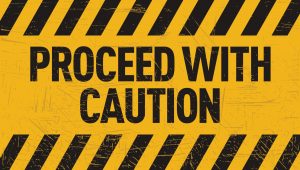

We have all heard it said “buyer beware”. The belief was that sellers were peddling substandard goods or elevating prices beyond what was reasonable or offering warranties that were constructed to be indecipherable at best and absolutely no good at their worst. Sellers were preying on the uninformed, illiterate, and desperate. The emphasis in the past has therefore been a warning that all of the due diligence load was on the buyer.
Today, in many cases it is just as important that the “seller beware”
Buyers have changed, we’re seeing some creative structures in which buyers want to purchase a business under terms that are slanted a little too far in the buyer
’s favor. While there may be nothing wrong with wanting the best deal, sellers don’t want to leave too much on the table either. Here are a few red flags that sellers can look for that signal a buyer who might not be leveling:
Sellers can’t always
give the sort of detailed attention to these flags that they need and so they either lose their shirt or they employ people who can sort through all the details and obscurities in order to ensure a fair deal.
That’s what we do, and that’s why we’re so crucial to your business sale.